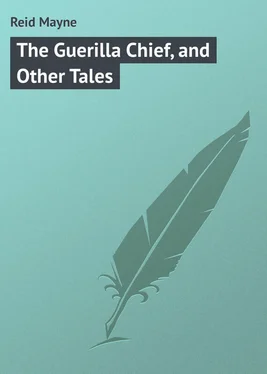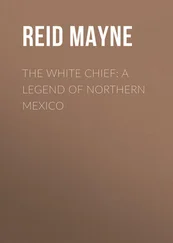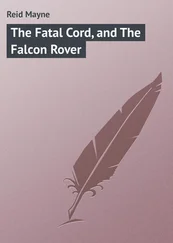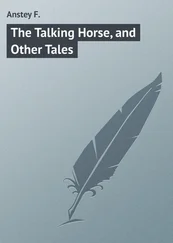Mayne Reid - The Guerilla Chief, and Other Tales
Здесь есть возможность читать онлайн «Mayne Reid - The Guerilla Chief, and Other Tales» — ознакомительный отрывок электронной книги совершенно бесплатно, а после прочтения отрывка купить полную версию. В некоторых случаях можно слушать аудио, скачать через торрент в формате fb2 и присутствует краткое содержание. Жанр: foreign_prose, на английском языке. Описание произведения, (предисловие) а так же отзывы посетителей доступны на портале библиотеки ЛибКат.
- Название:The Guerilla Chief, and Other Tales
- Автор:
- Жанр:
- Год:неизвестен
- ISBN:нет данных
- Рейтинг книги:5 / 5. Голосов: 1
-
Избранное:Добавить в избранное
- Отзывы:
-
Ваша оценка:
- 100
- 1
- 2
- 3
- 4
- 5
The Guerilla Chief, and Other Tales: краткое содержание, описание и аннотация
Предлагаем к чтению аннотацию, описание, краткое содержание или предисловие (зависит от того, что написал сам автор книги «The Guerilla Chief, and Other Tales»). Если вы не нашли необходимую информацию о книге — напишите в комментариях, мы постараемся отыскать её.
The Guerilla Chief, and Other Tales — читать онлайн ознакомительный отрывок
Ниже представлен текст книги, разбитый по страницам. Система сохранения места последней прочитанной страницы, позволяет с удобством читать онлайн бесплатно книгу «The Guerilla Chief, and Other Tales», без необходимости каждый раз заново искать на чём Вы остановились. Поставьте закладку, и сможете в любой момент перейти на страницу, на которой закончили чтение.
Интервал:
Закладка:
As I arose to my feet, I was confronted by the Mexican medico , to whose indifferent English I had been for some time listening.
“Señor Capitan,” he said, after saluting me with a polite wave of the hand, “I have been told that I may address you in my own language. In it, and in the name of humanity, let me thank you for the kindness you have shown to our wounded soldiers. In you, sir, we no longer recognise an enemy.”
“The trifling assistance I have rendered is scarcely deserving of thanks. I fear that to some of the poor fellows who were its recipients it has been of no avail. More than one of them must have succumbed during the night.”
“That reminds me, Señor Capitan, that I should not lose time. I carry, as you perceive, a safeguard from the American Commander-in-chief.”
While speaking, he held out the document referred to, in order that I might examine it.
“It is not necessary,” I said; “you are of the medical staff; your errand is your passport.”
“Enough, Señor Capitan. I shall proceed to the accomplishment of my duty. In the name of humanity and Mexico, once more I thank you!”
Saying this, he walked off with his followers towards that portion of the field, where most of his wounded countrymen had miserably passed the night.
In the style and personal appearance of this Mexican there was a gracefulness peculiarly impressive. He was a man of not less than fifty years of age, of dark complexion under snow-white hair, and with features so finely outlined as to appear almost feminine. A pair of large, liquid eyes, a voice soft and musical, small delicate hands, and a graceful modesty of demeanour, bespoke him a person of refinement – in short, a gentleman.
The fact of his speaking English, though not very fluently, being an accomplishment rare among his countrymen, betokened intellectual culture, perhaps foreign travel – an idea strengthened by his general manner and bearing. There was something in his looks, moreover, that led me to think he must be clever in his calling.
I bethought me of the invalid inside the tent. Calros might stand in need of his skill.
I was about to summon him back, when the young girl, hurrying out, anticipated my intention. She had overheard the dialogue between the new-comer and myself, and, thinking only of her brother, had rushed forth to claim the services of the surgeon .
“Oh, Señor,” she cried, making the appeal to myself, “will you call him back to – to see Calros?”
“I was about to do so,” I replied. “He is coming!”
I had not even the merit of summoning the medics. On hearing her voice he had stopped and turned round, his attendants imitating his example. The eyes of all were concentrated on the Jarocha.
“Señorita,” said the surgeon, stepping towards the tent and modestly raising his sombrero as he spoke, “so fair a flower is not often found growing upon the ensanguined field of battle. If I have overheard you aright, it is your wish I should see some one who is wounded – some one dear to you, no doubt?”
“My brother, sir.”
“Ah! your brother,” said the Mexican, regarding the girl with a look that betokened a degree of surprise. “Where may I find him?”
“In the tent, señor. Calros, dear Calros! there is a medico, a real surgeon, coming to see you.”
And as the girl gave utterance to the words she stepped quickly inside the marquee, followed by the surgeon himself.
Story 1, Chapter XII
A Side Conversation
I was about to enter after them, when some words spoken by one of the attendants, who had drawn nearer to the tent, arrested my steps, causing me to remain outside.
“It’s Lola Vergara,” said the speaker; “that’s who it is. Any one who has had the good fortune to see that muchacha once, won’t be likely to forget her face, and won’t object to look at it a second time.”
“You’re right in what you say, Anton Chico. I know one who, instead of disliking to look at her beautiful countenance, would give an onza for a single glance at it. Carrambo ! that he would.”
“Who – who is he?” asked several of the party.
“That big captain of guerilleros – Rayas, his name. I know he’d like to see her.”
“Why, her brother belonged to his cuadrilla ; and the girl was with him in the camp. I saw her myself, not three days ago, down by Puente National.”
“That’s quite true!” assented the speaker who had endorsed the declaration of Anton Chico.
“She was with the army for some days, along with the other women that followed Rayas’s troop. But then all at once she was missed, and nobody knew where she went to. Capitan Rayas didn’t, I know; or why should he have offered an onza to any one who would tell him?”
“He made that offer?”
“ Ver dad ! I heard him.”
“To whom?”
“To that ugly zambo you’ve seen skulking about the camp – who belongs to nobody. It was at the Puente National, as I have said. I was standing under the bridge – the dry arch at the further end. It was just after dark; when, who should come there but Capitan Rayas, and the zambo following him. They were talking about this very niña : and I heard her name more than once. I did not hear much, for I had to keep a good distance off, so that they might not see me. But I heard that.”
“What?”
“What I’ve said about the offer of the onza. ‘Find out, Santucho,’ said Rayas – Santucho is the zambo’s name – ‘find out where he has hid her.’”
“Who has hid her?”
“ Carrambo ! that’s what I couldn’t make out; but who, if it wasn’t her own brother? – Calros, they call him.”
“There’s something ugly in all that,” remarked one of the men.
“It isn’t the niña, that’s certain,” jocularly rejoined Anton Chico.
“The zambo, then! he’s ugly enough. What say you, camarados?”
“The patron, who wanted to employ him, is no great beauty himself,” said one who had not before spoken. “Notwithstanding his fine trappings, he has got some black marks against him. Look here, hombres ,” continued the speaker, drawing nearer to the others, and adopting a more confidential tone. “I’m a blind man, if I haven’t seen his phiz before; ay, and tapado at that.”
“Tapado?” echoed several.
“With black crape! It was only on my last trip but one up the country. I went with the recua of José Villares. He carried goods for that English house – you know – in the Calle do Mercaderos. Well, we were stopped at the Pinal, between Peroté and Puebla; every mule stripped of its carga ; and every man of us, with José himself obliged to lie with our mouths to the grass, till the rascals had rifled the recua . They took only what was most valuable and easiest carried; but, carrambo ! it well nigh ruined poor José; he has never been the same aniero since.”
“What of all that, hombre?” inquired one, who seemed to be still unsatisfied. “What has that to do with the Capitan Rayas?”
“Ah! I forgot,” said the accuser; “it was of the Capitan Rayas we were speaking. Well, it has this to do with him. The salteadores were all tapado, with black crape over their faces, their captain like the rest; but while he was engaged examining some papers he took from José, I caught a glance of his ugly countenance – just enough to know it again. If it wasn’t the same I saw the other day when I met this Rayas in the camp, then I don’t know chingarito from holy water. I’ll answer for it from the chin up to the eyes. Above that I didn’t see it, for the tapado was over it.”
Читать дальшеИнтервал:
Закладка:
Похожие книги на «The Guerilla Chief, and Other Tales»
Представляем Вашему вниманию похожие книги на «The Guerilla Chief, and Other Tales» списком для выбора. Мы отобрали схожую по названию и смыслу литературу в надежде предоставить читателям больше вариантов отыскать новые, интересные, ещё непрочитанные произведения.
Обсуждение, отзывы о книге «The Guerilla Chief, and Other Tales» и просто собственные мнения читателей. Оставьте ваши комментарии, напишите, что Вы думаете о произведении, его смысле или главных героях. Укажите что конкретно понравилось, а что нет, и почему Вы так считаете.












